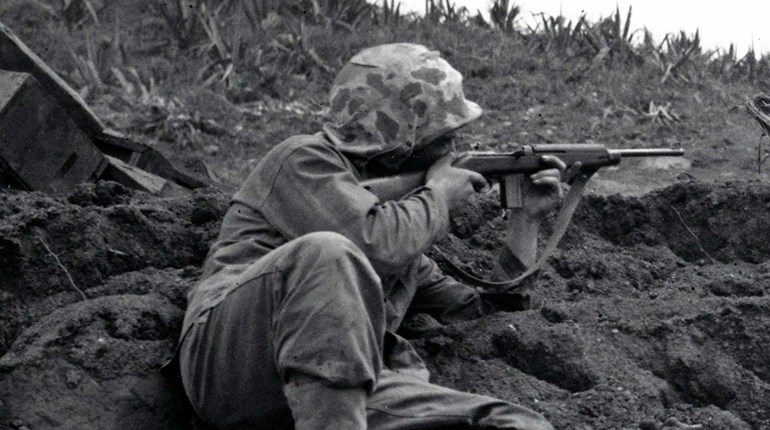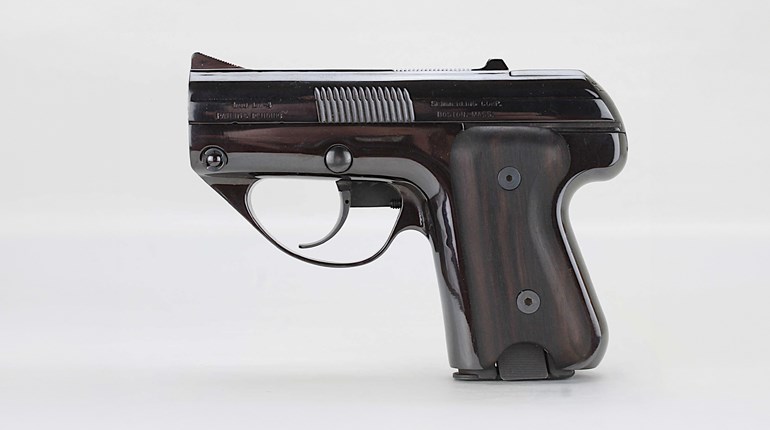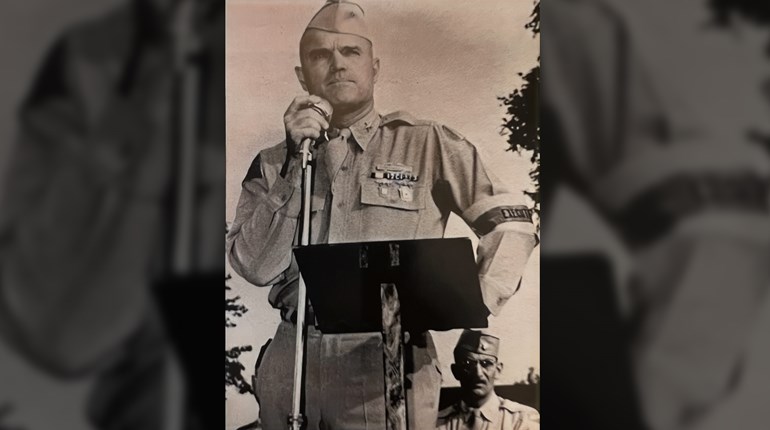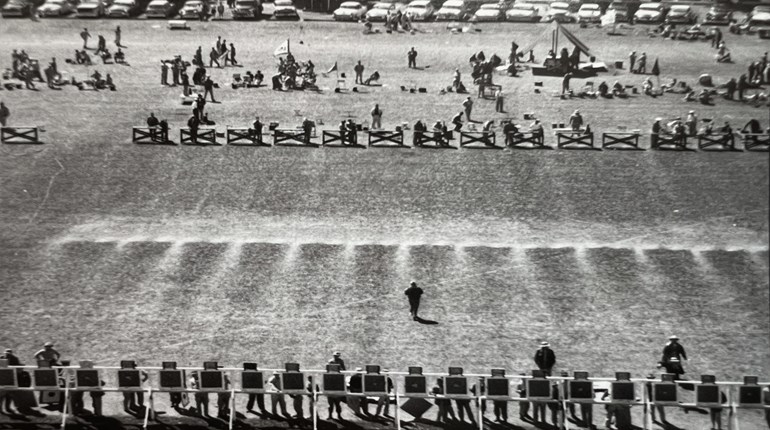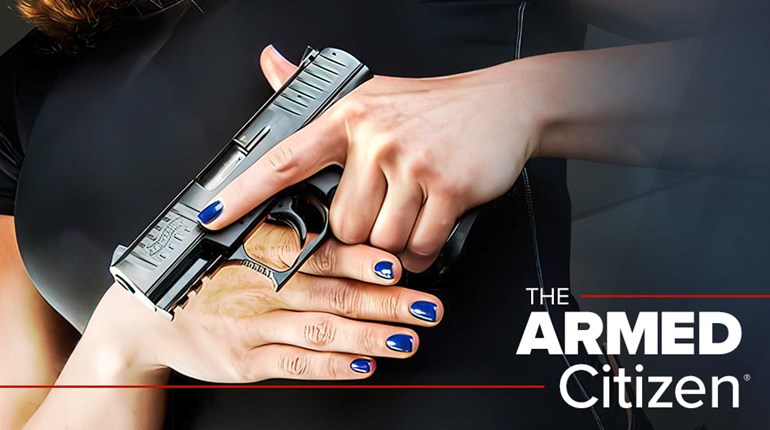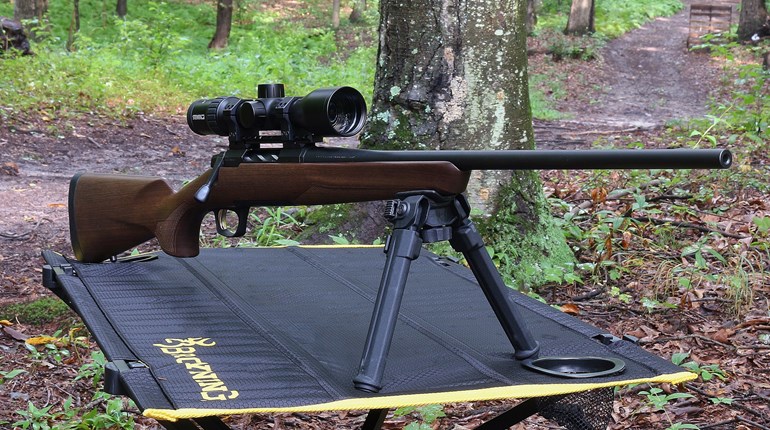
Whether statesman and philanthropist Bernard Baruch, writers George Orwell or Walter Lippmann, or an obscure Frenchman actually coined the term “Cold War,” the appellation must have seemed a rotten irony to early arrivals on a little-known East Asian sliver called Korea in a baking June of 1950.
For 35 years, the Korean peninsula had been part of the Empire of Japan, but was divvied up by two U.S. State Department staffers along the 38th parallel as a pro-western democracy (South, Republic of Korea or ROK) and a Communist vassal state (North, Democratic People’s Republic of Korea or DPRK) by 1948. Neither faction’s leader was happy with the arrangement. Before outsiders became undeniably involved, more than 10,000 soldiers had already lost their lives in border skirmishes under the guise of reunification.
All the same, the South was badly surprised on June 25, 1950, when Northern troops flooded across the border. In less than two months, the North controlled 90 percent of South Korea, and 95 percent of the peninsula. The badly out-manned and under-equipped ROK and UN forces were eventually bottled up in a desperate defense of the Pusan Perimeter in the southeast corner of the erstwhile nation.
Relief and serious reversal for the North Koreans came by mid-September in the form of an American/UN amphibious landing led by Gen. Douglas MacArthur. Supported by more than 250 vessels, 75,000 troops captured the city of Inchon on the western side of the peninsula in only four days. Only open Communist Chinese reinforcement saved the DPRK troops from being cut off in the South.
Thus began nearly three more years of bloody, seesaw battle ranging over very nearly the whole peninsula. Fought in an area about the size of the state of Utah, the conflict would nevertheless engage more than 5.7 million U.S. soldiers (with 1.8 million actually going to Korea), roughly half the number required for all theaters of WWII. Both capitals would fall, the southern capital (Seoul) changing hands four times. That searing summer heat of July and August—which saw U.S. troops widely sickened when they tried to adapt irrigation water for drinking—would prove a stark counterpoint to the Battle of “Frozen” Chosin Reservoir in late November and early December of 1950. There, 67,000 Chinese and North Korean troops would very nearly entrap the 30,000 “Chosin Few” of the United Nations Command. While we preserved an ally, it was hard to see tiny Korea as a crucial one. Yet 37,000 countrymen lost their lives, more than 100,000 were injured and as many 7,800 still remain unaccounted for.
Dogged, often hand-to-hand combat and thousands of airstrikes marked the nearly month-long battle in temperatures as low as -35 degrees F. In the end, UN forces withdrew from the North with much of their strength and gear through the port of Hungnam, destroying it behind them. The Chinese and North Koreans technically won the battle to reclaim northeastern Korea, but the cost was ghastly: over 40,000 men, nearly half lost to the severe conditions. UN and ROK casualties were more than 10,000. The severity and intensity of the fighting resulted in seventeen Medals of Honor for actions at Chosin. Though bloody to the end (like in battles at Heartbreak Ridge and Pork Chop Hill), the remainder of the war saw comparatively much smaller movements of battle lines while the struggle to negotiate an end to hostilities dragged on in Kaesong and then in Panmunjom.
The confusions of the Korean War were far-reaching. At the beginning, international Communist involvement and support of Noth Korea was not widely known, and war-weary Americans were apprehensive about being drawn into another faraway war. The “police action” of Korea—the U.S. Congress never declared war—was also viewed as a possible Russian feint and precursor to renewed war in Europe. When Chinese and Russian Communist involvement did become clear, the potential to go nuclear (the Soviets having exploded their first on August 29, 1949) heightened American anxieties. Many military assets that might have shortened the war or ended in a decisive UN victory remained in Europe to keep Soviet-bloc ambitions in check.
In the United States, widespread evidence that we were again at war was less apparent: Far-reaching support of the effort in the form of rationing, for instance, never appeared. Mobilization was simpler, too, with a large pool of World War II veterans to draw upon (nearly a quarter of Korean veterans also saw action in WWII). Despite the cost and scale, Korea became the “Forgotten War,” as coined by US News and World Report in 1951.Dogged, often hand-to-hand combat and thousands of airstrikes marked the nearly month-long battle in temperatures as low as -35 degrees F.
Looking back, the Korean War had many firsts. It was the first shooting war in a series of conflicts ascribed to the “Domino Theory,” and part of a string of other direct U.S. actions (in Vietnam and Cuba [aborted]) and indirect actions (Greece, Turkey) that would, for the most part, constrain international Communism. In that sense, it was successful: South Korea remains a free and vibrant nation, while the North remains brutally oppressed.
It was the first conflict to pit jet aircraft against one another, and their impact on the course of the war was profound in many cases. Those technologies would go on to fuel rapid developments in both civilian and military aviation for at least 20 years.
It was also the first American war in which there was no clear victor. While we preserved an ally, it was hard to see tiny Korea as a crucial one. Yet 37,000 countrymen lost their lives, more than 100,000 were injured and as many 7,800 still remain unaccounted for.
In perhaps a fitting asymmetry, the Korean War ended 62 years ago this week without a declaration of such: The combatants simply stopped shooting and packed up. That may in part explain the “forgotten” nature of the war and its soldiers. For many, coming home was enough.
The lens of history, however, may not show the rest of us quite so honorably: Consider that it’s not too late to find a Korean vet, and say “thank you.”













